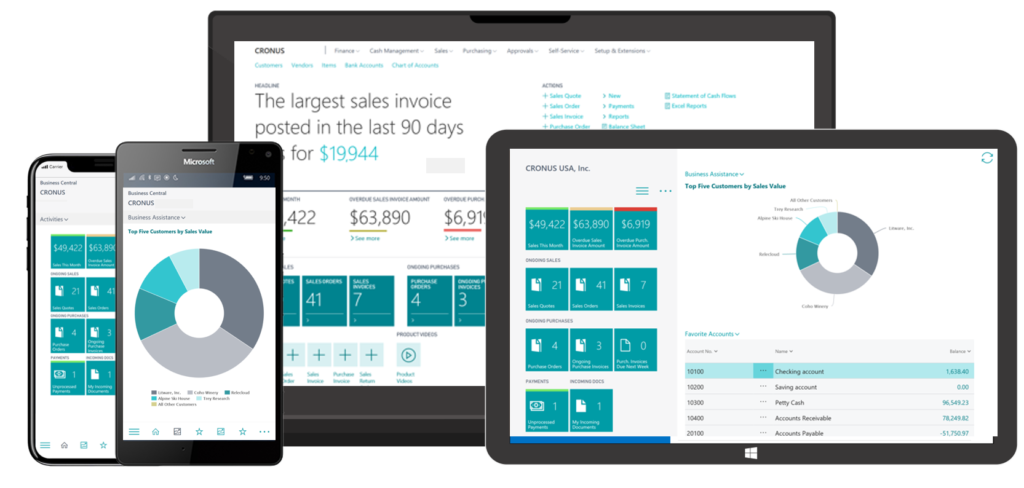
Business central solutions
Integrations
Drive Efficiency, Simplify Operations, and Accelerate Growth

Custom Integration
Custom integration solutions for Microsoft Dynamics 365 Business Central enable businesses to connect their ERP system with other software, tools, or platforms for seamless data exchange and enhanced functionality. These integrations help organizations automate processes, eliminate data silos, and improve operational efficiency.
Whether it’s linking Business Central with a CRM, e-commerce platform, third-party applications, or legacy systems, custom integration ensures a tailored solution that fits unique business needs.
Use Cases for custom order planning solution
Optimize production schedules based on demand forecasts and material availability.
Automate replenishment of fast-moving products and avoid stockouts during peak seasons.
Consolidate multi-channel order data to efficiently plan inventory and shipping.
Align order planning with international shipping schedules to reduce delays and penalties.

Benefits of Custom Integration
Integrates Business Central with tools like Salesforce, Shopify, or Power BI for a unified business process.

Automates repetitive tasks such as syncing inventory, financial data, or customer records.
Enables real-time data sharing between systems, ensuring up-to-date information for decision-making.
ransforms data formats to ensure compatibility between systems.
Provides tailored reports and dashboards by combining data from multiple systems.
Implementation Steps
Assessment
Evaluate your current business intelligence needs and identify key performance indicators (KPIs).
Deployment
Install the Business central on all required devices.
Training
Conduct training sessions for team members to familiarize them with the application and its features.
FAQ
FAQs about custom Intefrations
The timeline varies depending on the complexity and number of systems involved but typically ranges from 4 to 12 weeks.
Yes, custom integrations in Business Central adhere to Microsoft’s security standards and additional compliance requirements like GDPR or HIPAA.
Costs depend on complexity, development time, and any additional tools or licenses required.
Yes, integrations are designed to scale, ensuring performance even with high data volumes.
